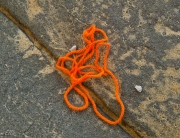Stress is our inability to deal with situations in our lives & leads to imbalances that effect our physical, mental, emotional & spiritual well-being. Not all stress is harmful, we actually need stress to stay alive. Our reactions to events or situations is the factor that determines whether the stress will be constructive or destructive.
The constructive aspect of stress is our ability to absorb information & experiences at an incredible rate. Learning begins as a journey of new discoveries, unhindered by the concept of failure. We learn to walk, talk, read, write & communicate by making mistakes. Gravity builds our bodily strength. Concepts, ideas & beliefs challenge us to question & think. Personal & inter-personal interaction expands our emotional experiences.
Our destructive reactions create changes in our body & mind. The adrenal glands release the hormone adrenaline into the bloodstream & blood flow is restricted to key muscles & organs. Those areas not dedicated to basic survival are “shut down” for the duration of the crisis. This is the fight (anger) / flight (fear) response where we either decide to stand & fight, directing blood to our upper body, or run away, sending blood flow to our legs & lower body. Our eyes & skin indicate this first stage of stress, with the eyes becoming dry & staring and the skin shiny as it contracts, forcing the oils out. As the reaction continues, our eyebrows begin to droop with the eyes & skin appearing dull. Blood pressure rises, our breathing rate increases, so too the blood levels of sugar & high energy fats.
If stress is unresolved, our immune response is reduced:
-
blood pressure continues to rise
-
gastric acid is secreted excessively
-
potassium is lost
-
the adrenal glands continue over-producing hormones
-
sexual drive reduces & confusion increases.
-
we become accident prone & begin to “feel like giving up” or “it’s all too hard”.
-
the eye on the weakest side of our body begins to roll upwards, showing more white under the eye.
As the reaction continues, depression occurs, our body becomes exhausted & our resistance is now totally compromised, giving disease a chance to take hold. It is possible at this point to avoid or deny something is wrong & lose control. Both eyes now roll upwards showing white under both.
Exercise is the best remedy for stress, creating hormones that are beneficial in producing natural “highs”. Sustained (uninterrupted) exercise, such as walking twenty minutes a day, increases the heart rate by pumping more blood per beat. Oxygen intake & absorption increases, our body becomes aerobic & our cells burn fat & glucose. Stress hormones are burned up, depression & anxiety decreases. Decision making becomes easier as we think more clearly. Bone density increases & our skin begins to glow. Our appetites become more balanced. (When anaerobic, we only burn glucose & crave sweets).
A Duke University study of 156 elderly patients showed that a 30 minute brisk walk reduced the effects of major depression. 60% who exercised showed improvement compared with 65% who used drugs over a 16 week period.
If you are “suffering” stress, use the correction procedure from Motivational Kinesiology Level One & start walking regularly.







Leave A Comment
You must be logged in to post a comment.